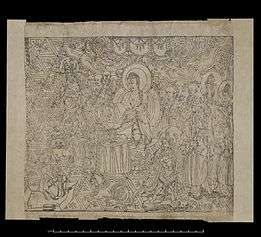868
| Millennium: | 1st millennium |
|---|---|
| Centuries: | |
| Decades: | |
| Years: |
| 868 by topic |
|---|
| Leaders |
| Categories |
|
| Gregorian calendar | 868 DCCCLXVIII |
| Ab urbe condita | 1621 |
| Armenian calendar | 317 ԹՎ ՅԺԷ |
| Assyrian calendar | 5618 |
| Balinese saka calendar | 789–790 |
| Bengali calendar | 275 |
| Berber calendar | 1818 |
| Buddhist calendar | 1412 |
| Burmese calendar | 230 |
| Byzantine calendar | 6376–6377 |
| Chinese calendar | 丁亥年 (Fire Pig) 3564 or 3504 — to — 戊子年 (Earth Rat) 3565 or 3505 |
| Coptic calendar | 584–585 |
| Discordian calendar | 2034 |
| Ethiopian calendar | 860–861 |
| Hebrew calendar | 4628–4629 |
| Hindu calendars | |
| - Vikram Samvat | 924–925 |
| - Shaka Samvat | 789–790 |
| - Kali Yuga | 3968–3969 |
| Holocene calendar | 10868 |
| Iranian calendar | 246–247 |
| Islamic calendar | 253–255 |
| Japanese calendar | Jōgan 10 (貞観10年) |
| Javanese calendar | 765–766 |
| Julian calendar | 868 DCCCLXVIII |
| Korean calendar | 3201 |
| Minguo calendar | 1044 before ROC 民前1044年 |
| Nanakshahi calendar | −600 |
| Seleucid era | 1179/1180 AG |
| Thai solar calendar | 1410–1411 |
| Tibetan calendar | 阴火猪年 (female Fire-Pig) 994 or 613 or −159 — to — 阳土鼠年 (male Earth-Rat) 995 or 614 or −158 |
| Wikimedia Commons has media related to 868. |

First printed copy of the Diamond Sūtra
Year 868 (DCCCLXVIII) was a leap year starting on Thursday (link will display the full calendar) of the Julian calendar.
Events
By place
Europe
- King Charles the Bald meets his brother Louis the German at Metz. They agree to a partition of Lotharingia, which belonged to former emperor Lothair I (now in possession of his sons Lothair II and Louis II).
- Salomon, duke ('king') of Brittany, leads a joint campaign against the Loire Vikings. He is forced to defend south-eastern Brittany unaided, and mobilizes levies raised at Poitiers to defeat the Vikings.
- Al-Andalus: The city of Mérida rises against the Umayyad rule. Emir Muhammad I regains control, and has the walls of the city destroyed. He supports the rival creation of Badajoz in retaliation.[1]
- The County of Portugal is established by Vímara Peres, an Asturian nobleman, after the reconquest from the Moors of the region north of the Douro River.
Britain
- Alfred the Great marries Ealhswith (a daughter of Æthelred, known as Mucel, an ealdorman of the Gaini). He supports his brother Æthelred I, in his choice to form a alliance with Mercia.
- King Burgred of Mercia appeals to Æthelred I for help in resisting the Great Heathen Army. The Danes occupy Nottingham, and stay through the winter without any serious opposition.[2]
- King Áed Findliath drives the invading Danes and Norwegians out of Ireland, after defeating them at the Battle of Killineery.
Africa
- September 15 – Ahmad ibn Tulun, a Turkish general, is sent to Egypt as governor, by the Abbasid caliph Al-Mu'tazz. He becomes the founder of the Tulunid Dynasty (until 905).
- Muslim Arab forces under Muhammad II, emir of the Aghlabid Dynasty (modern Tunisia), conquer the island of Malta and raid into the mainland of Italy.
Asia
- The earliest extant printed book, an illustrated scroll of the Diamond Sūtra ("Perfection of Wisdom"), unearthed at Dunhuang (Western China), is produced.[3]
By topic
Religion
- Ratramnus, Frankish monk and abbot of Corbie Abbey, writes Contra Graecorum Opposita.
Births
- Choe Eon-wui, Korean minister and calligrapher (d. 944)
- Muhammad ibn Dawud al-Zahiri, Muslim theologian (d. 909)
- Théodrate of Troyes, Frankish queen (d. 903)
- Xu Jie, Chinese officer and chancellor (d. 943)
Deaths
- Ali al-Hadi, tenth Shia Imam
- Al-Jahiz, Afro-Muslim scholar and writer (b. 776)
- Bugha al-Sharabi, Turkish military leader
- Conwoïon, Breton abbot (approximate date)
- Minamoto no Makoto, Japanese prince (b. 810)
- Muzahim ibn Khaqan, Muslim governor
- Theotgaud, archbishop of Trier
- Yang Shou, chancellor of the Tang Dynasty
- Yu Xuanji, Chinese poet (or 869)
References
- ↑ Rucquoi, Adeline (1993). Histoire médiévale de la Péninsule ibérique. Paris: Seuil. p. 86. ISBN 2-02-012935-3.
- ↑ Paul Hill (2009). The Viking Wars of Alfred the Great, p. 31. ISBN 978-1-59416-087-5.
- ↑ Victor H. Mair 2016 (lecture). "Dunhuang as Nexus of the Silk Road during the Middle Ages" on YouTube (58:30~58:40) Getty Research Institute. Accessed September 15, 2016.
This article is issued from
Wikipedia.
The text is licensed under Creative Commons - Attribution - Sharealike.
Additional terms may apply for the media files.